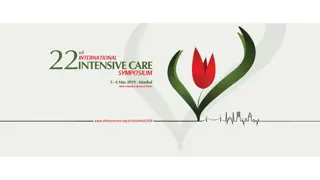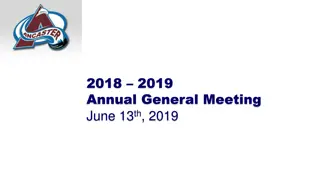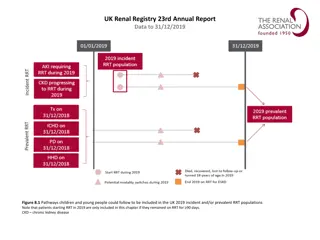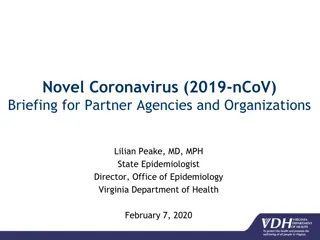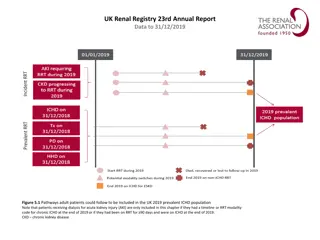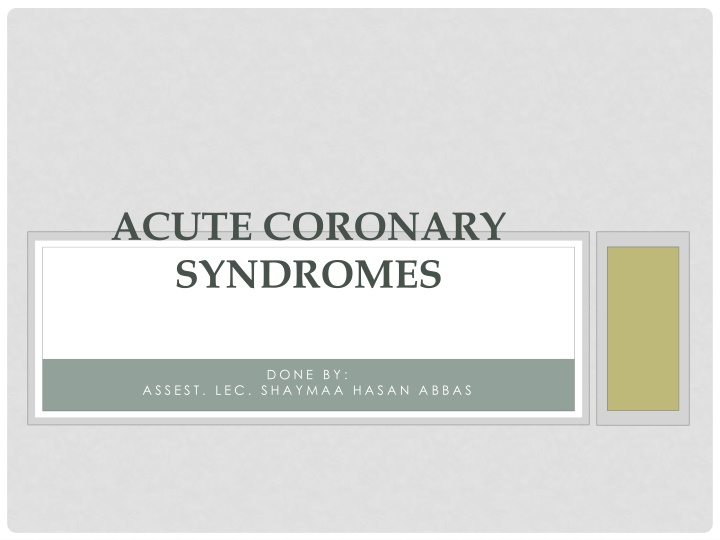
Management of Acute Coronary Syndromes - Treatment Overview
Learn about the management of acute coronary syndromes (ACS) including reperfusion therapy, early pharmacologic therapy, aspirin use, thienopyridines, and anticoagulants such as unfractionated heparin. Understand the importance of timely intervention with either primary percutaneous coronary intervention or fibrinolytic therapy, along with early pharmacotherapy for ST-segment elevation ACS. Explore recommendations for optimizing patient outcomes in ACS cases.
Download Presentation

Please find below an Image/Link to download the presentation.
The content on the website is provided AS IS for your information and personal use only. It may not be sold, licensed, or shared on other websites without obtaining consent from the author. If you encounter any issues during the download, it is possible that the publisher has removed the file from their server.
You are allowed to download the files provided on this website for personal or commercial use, subject to the condition that they are used lawfully. All files are the property of their respective owners.
The content on the website is provided AS IS for your information and personal use only. It may not be sold, licensed, or shared on other websites without obtaining consent from the author.
E N D
Presentation Transcript
ACUTE CORONARY SYNDROMES D O N E B Y : A S S E S T . L E C . S H A Y M A A H A S A N A B B A S
ACUTE CORONARY SYNDROMES Reperfusion therapy Early reperfusion therapy with either primary percutaneous coronary intervention (PCI) or administration of a fibrinolytic agent within 3 hours of symptom onset is the recommended therapy for patients presenting with STE ACS.
REPERFUSION THERAPY Fibrinolytic therapy is preferred over primary PCI in patients presenting within 3 hours of symptom onset where there is a delay in door-to-primary PCI less than 90 minutes. either alteplase, reteplase, or tenecteplase are acceptable as first-line agents. It is not necessary to obtain the results of biochemical markers before initiating fibrinolytic therapy
EARLY PHARMACOLOGIC THERAPY FOR ST-SEGMENT ELEVATION ACUTE CORONARY SYNDROMES: in addition to reperfusion therapy,early pharmacotherapy of STE should include: 1- intranasal oxygen (if oxygen saturation is less than 90%) 2- Nitrates: One sublingual nitroglycerin tablet should be administered every 5 minutes for up to three doses in order to relieve myocardial ischemia.
EARLY PHARMACOLOGIC THERAPY FOR ST-SEGMENT ELEVATION ACUTE CORONARY SYNDROMES: 3- aspirin, initial dose of 160 to 325 mg is required to achieve rapid platelet inhibition, long-term therapy with doses of 75 to 150 mg daily are as effective as higher doses.
EARLY PHARMACOLOGIC THERAPY FOR ST- SEGMENT ELEVATION ACUTE CORONARY SYNDROMES: 4- Thienopyridines : Administration of clopidogrel is recommended for all patients with STE ACS 5- Anticoagulants Unfractionated heparin, administered as a continuous infusion, is a first-line anticoagulant for treatment of patients with STE ACS, both for medical therapy and for patients undergoing PCI. Unfractionated heparin should be initiated in the emergency department and continued for 48 hours or longer in patients who will be bridged over to receive chronic warfarin
EARLY PHARMACOLOGIC THERAPY FOR ST-SEGMENT ELEVATION ACUTE CORONARY SYNDROMES: 6- Morphine is administered as an analgesic and a venodilator that lowers preload. This agent should be administered early, while the patient is still in the emergency department.
EARLY PHARMACOLOGIC THERAPY FOR ST-SEGMENT ELEVATION ACUTE CORONARY SYNDROMES: 6- Beta-Blockers Intravenous or oral doses of a -blocker should be administered early in the care of a patient with STE ACS, and then oral agents should be continued indefinitely.
EARLY PHARMACOLOGIC THERAPY FOR ST-SEGMENT ELEVATION ACUTE CORONARY SYNDROMES: 8 Glycoprotein IIb/IIIa Receptor Inhibitors Abciximab is a first-line glycoprotein IIb/IIIa receptor inhibitor for patients undergoing primary PCI who have not received fibrinolytics. It should not be administered for medical management of the STE ACS patient who will not be undergoing PCI
THANK YOU












